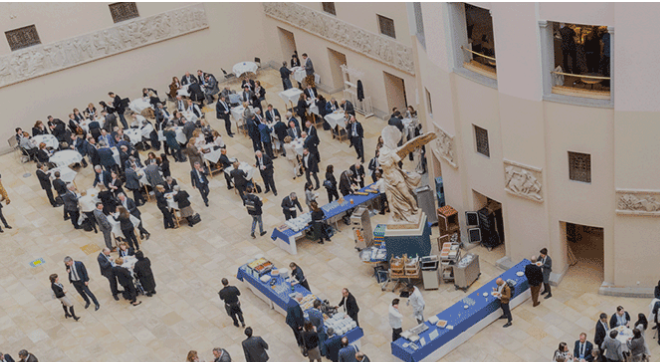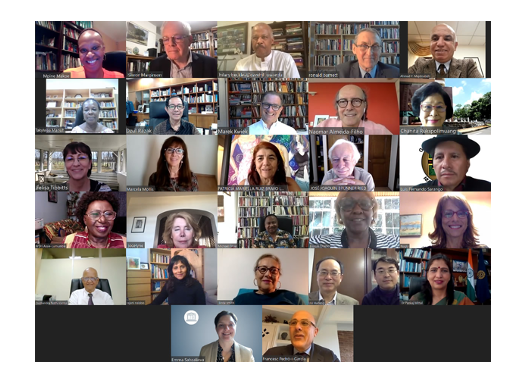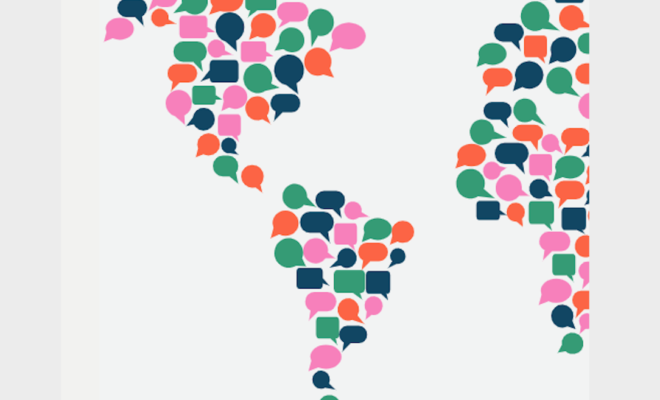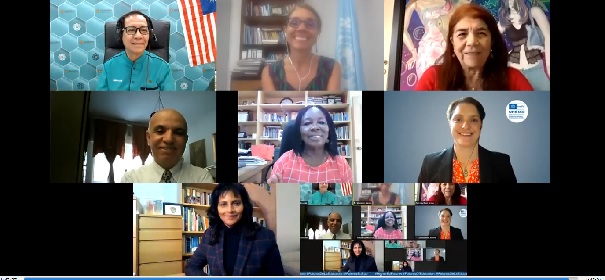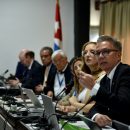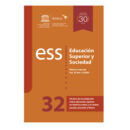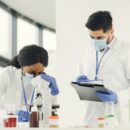Report on the Futures of Higher Education envisions collective and holistic responses to global challenges

On May 25, 2021, the report “Thinking Higher and Beyond: Perspectives on the Futures of Higher Education to 2050“ was launched at a virtual meeting attracting over 500 attendees. The report is the result of a collective and creative process of discussions around the role of higher education globally. Two questions guide this work: how would you like higher education to be in 2050? And how could higher education contribute to better futures for all in 2050?
- Values such as respect, empathy, equality, and solidarity should be at the core of future higher education institutions and their missions
- Higher education can be shaped as a public good and as a driver of social and economic development of countries and regions
- To democratize digitalization,
higher education actors should advoca te for the right to connectivity, to a device, and to networking, e.g. throug h learning hubs - Higher education institutions should be at the forefront of tackling the climate crisis
and other global challenges, through knowledge production and technology incubation and transfer, and integrating climate change education into learning
The aim of this report compiled by the UNESCO International Institute for Higher Education in Latin America and the Caribbean (IESALC) has been to gather the wide-ranging points of views of 25 global higher education experts who were invited to participate in this phase of the Futures of Higher Education project. Through written concept notes and participation in online workshops, experts’ knowledge and ideas were mobilized to create the report, which sets out the possibilities for different, better futures for higher education. “We are concerned not only with forecasting the futures, interpreting the futures, and critiquing the futures of higher education, but also with creating, not just the possibility but the reality of alternative futures for higher education,” explains Francesc Pedró, Director of IESALC, in the foreword.
Framed within the UNESCO Futures of Education initiative, the report highlights four key messages for higher education towards 2050: 1. To take active responsibility in the development of the potential of all humans; 2. To promote wellbeing and sustainability, oriented towards justice, solidarity, and human rights; 3. To draw strength from interculturality and diversity, respecting cultures and identities, and creating spaces for dialogue; 4. Finally, to create and uphold interconnectedness, for
Shaping the purposes of higher education
As part of the curatorial work done by the UNESCO IESALC analyst team, quotations or ideas attributed to a certain expert are included in the report and are shown below with their name in brackets.
According to one of the report’s statements, higher education needs to shape within a public good model, which “has been decisively demonstrated during the Covid-19 pandemic to be able to better sustain stable institutions” (Simon Marginson). Higher education institutions can harness their “collective disruptive thinking” (Sir Hilary Beckles) to support a shift in global and regional development paradigms, thus incorporating higher education as a driver of social and economic development in countries and regions.
Within the public good model, one example of how governments could provide free higher education for all could be through a “Global Learning Fund” (Nagla Rizk) that would oblige economically richer countries and global businesses to contribute a portion of their profits to subsidize higher education across regions. Conceptualizing higher education as an interconnected ecosystem would enhance collaboration and make it more connected, externally and internally, with the other ecosystems with which it is entangled (Ronald Barnett), such as knowledges, other social institutions, and the economy.
The Covid-19 pandemic has shown the enhanced need for global cooperation in research, innovation, and enhancing scientific capacities. Responses to global challenges such as this will be at the heart of future international cooperation, underpinned by values of integrity and equitable access that should also be reflected in how higher education institutions are led and governed.
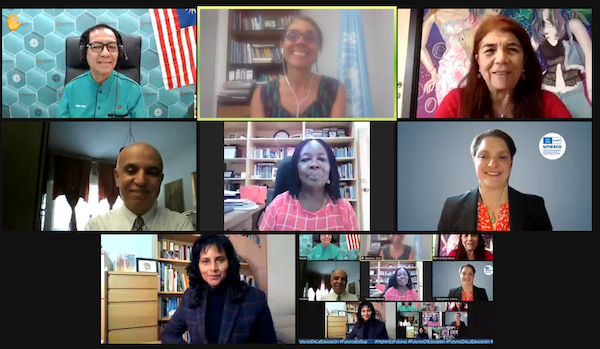
Photo (from left to right, top to bottom): Dzulkifli (Dzul) Razak; Sara Maneiro (moderator); Patricia Mariella Ruiz Bravo Lopez; Ahmad Y. Majdoubeh; Takyiwaa Manuh; Emma Sabzalieva (UNESCO IESALC), and Rajani Naidoo at the webinar that marked the official launch of the report, on 25 may 2021
The collective response: education with a soul
In this route to strengthening the role of higher education, a more humane higher education for all is needed, to include more of the most vulnerable and traditionally excluded groups “such as out-of-schoolers, women, unemployed youth and persons with disabilities, indigenous communities in accordance with the broader objective to leave no one behind” (Dorcas Beryl Otieno). Higher education needs to be more responsive to diversity, attracting indigenous learners, ethnic minorities, refugees, and/or from under-served groups to create spaces for dialogue. After Covid-19, higher education institutions should work to reduce the digital divide, “to ensure that the integration of technologies into education is well supported” (Mpine Makoe) by access to the internet and devices and support to staff.
The integration of disciplines is also recommended because “new knowledge can emerge from hybridity” (Ahmad Y. Majdoubeh). Within this frame, the arts and sciences are invited to intertwine with innovation for an “integral education” (Ruiz Patricia Mariella Bravo López), aligned with “education in peace and human rights” (Felisa Tibbits), and an education that emphasizes the human dimension, including problem-solving, project work, entrepreneurship, climate change (Pankaj Mittal).
Values such as respect, empathy, equality, and solidarity will be at the core of future higher education institutions and their missions. In other words, “education with a soul” that “prepares learners not only for livelihood but for life” (Dzulkifli Razak), supporting them “to be better citizens, more aware of their civic and environmental responsibilities” (Jocelyne Gacel-Ávila). Learners should be tolerant regardless of gender identities, sexual preference, class, language, ethnicity, and other markers that often describe or define people and are divisive. Critical thinkers are needed to counter prejudices and fake news.
Download the report in English, en français, en español.
IESALC’s initiative continues
Related content: Gathering global expertise on the futures of higher education
RELATED ITEMS
